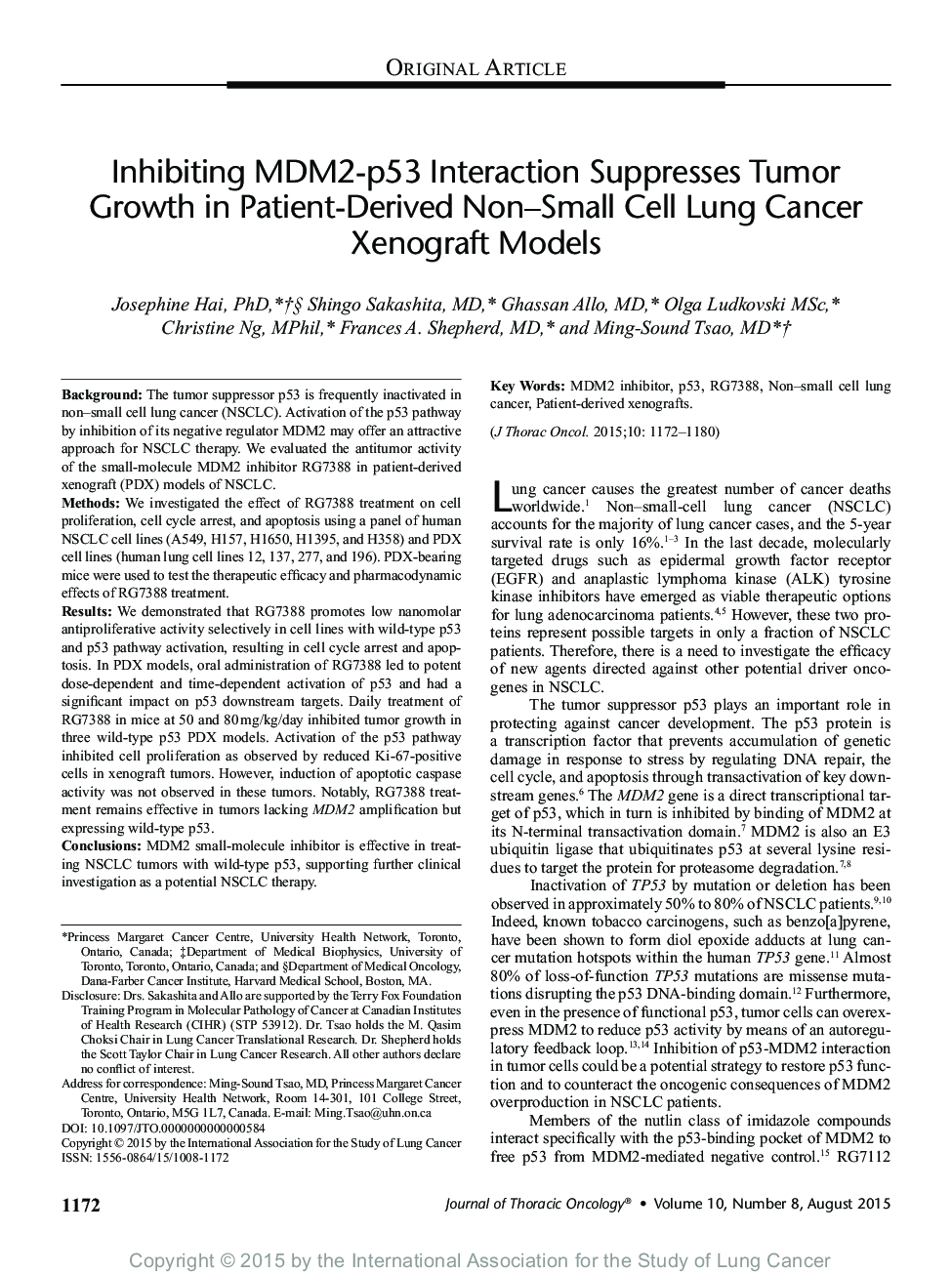| Article ID | Journal | Published Year | Pages | File Type |
|---|---|---|---|---|
| 6193020 | Journal of Thoracic Oncology | 2015 | 9 Pages |
Background:The tumor suppressor p53 is frequently inactivated in non-small cell lung cancer (NSCLC). Activation of the p53 pathway by inhibition of its negative regulator MDM2 may offer an attractive approach for NSCLC therapy. We evaluated the antitumor activity of the small-molecule MDM2 inhibitor RG7388 in patient-derived xenograft (PDX) models of NSCLC.Methods:We investigated the effect of RG7388 treatment on cell proliferation, cell cycle arrest, and apoptosis using a panel of human NSCLC cell lines (A549, H157, H1650, H1395, and H358) and PDX cell lines (human lung cell lines 12, 137, 277, and 196). PDX-bearing mice were used to test the therapeutic efficacy and pharmacodynamic effects of RG7388 treatment.Results:We demonstrated that RG7388 promotes low nanomolar antiproliferative activity selectively in cell lines with wild-type p53 and p53 pathway activation, resulting in cell cycle arrest and apoptosis. In PDX models, oral administration of RG7388 led to potent dose-dependent and time-dependent activation of p53 and had a significant impact on p53 downstream targets. Daily treatment of RG7388 in mice at 50 and 80âmg/kg/day inhibited tumor growth in three wild-type p53 PDX models. Activation of the p53 pathway inhibited cell proliferation as observed by reduced Ki-67-positive cells in xenograft tumors. However, induction of apoptotic caspase activity was not observed in these tumors. Notably, RG7388 treatment remains effective in tumors lacking MDM2 amplification but expressing wild-type p53.Conclusions:MDM2 small-molecule inhibitor is effective in treating NSCLC tumors with wild-type p53, supporting further clinical investigation as a potential NSCLC therapy.
